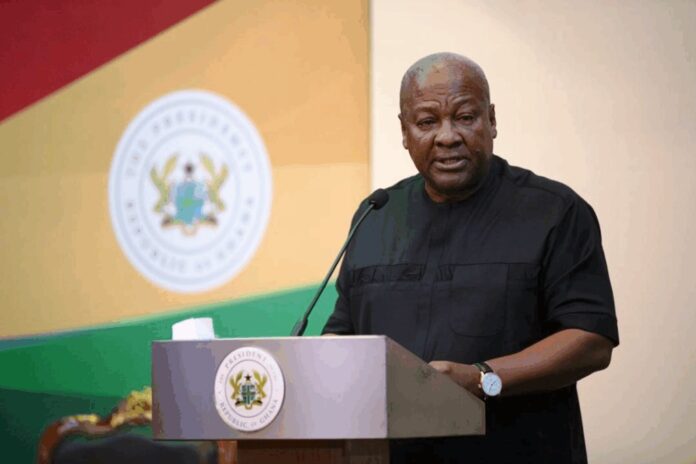A coalition of tertiary students with disabilities in Ghana has petitioned President John Dramani Mahama to reconsider aspects of the Free Tertiary Education Policy for Persons with Disabilities (PWDs), citing what they describe as exclusionary gaps in the current framework.
In a statement, the group expressed concern that while they commend the government’s commitment to providing free tertiary education for persons with disabilities at the undergraduate level, the policy’s failure to extend to postgraduate students and the removal of bursary support schemes have created new inequalities within the system.
The coalition noted that under the previous government, postgraduate students with disabilities benefited from academic user fee waivers and bursaries administered by the Scholarship Secretariat, provisions which they argue aligned with Section 18 of the Persons with Disability Act, 2006 (Act 715).
The Act requires the state to ensure access to free education and training for persons with disabilities at all levels.
However, they said the current version of the policy undermines that statutory protection by excluding postgraduate coverage and bursary assistance, effectively limiting academic progression and professional advancement for qualified students with disabilities.
“A student with a disability who advances to postgraduate studies may now be excluded or left without state support — a barrier to full participation in higher learning and professional development,” the petition read.
The group further argued that the absence of maintenance allowances or clearly defined postgraduate coverage contradicts the government’s commitment to equality and inclusion. They warned that without adjustments, the policy risks becoming a regression compared to previous frameworks.
Among several recommendations, the coalition urged the government to:
- Expand coverage to include postgraduate levels (Masters, MPhil, and PhD) with full fee waivers and maintenance support.
- Reintroduce annual bursaries or social assistance to help offset living costs, transport, and the purchase of assistive devices.
- Clarify and publish comprehensive policy guidelines outlining eligibility, scope, and implementation timelines.
- Ensure parity with previous scholarship schemes by mapping and integrating earlier benefits into the new framework.
- Establish monitoring mechanisms to track participation, dropouts, and employment outcomes among persons with disabilities.
The coalition also called on government to include students with disabilities enrolled in accredited private tertiary institutions and those at the Ghana School of Law.
Beyond education, the group raised serious concerns about the growing unemployment rate among graduates with disabilities. They lamented the lack of enforcement of Section 9 of Act 715, which requires public institutions to reserve at least 5% of employment opportunities for qualified persons with disabilities.
They recommended the introduction of tax incentives and recognition schemes for private sector employers who hire persons with disabilities, as well as the establishment of a “PWD Skills and Enterprise Development Fund” to support entrepreneurship.
The coalition expressed confidence in President Mahama’s record of advancing social justice and appealed for his intervention to make the policy more inclusive and sustainable.



